OPENING NIGHT:
BEAU TRAVAIL (1999)
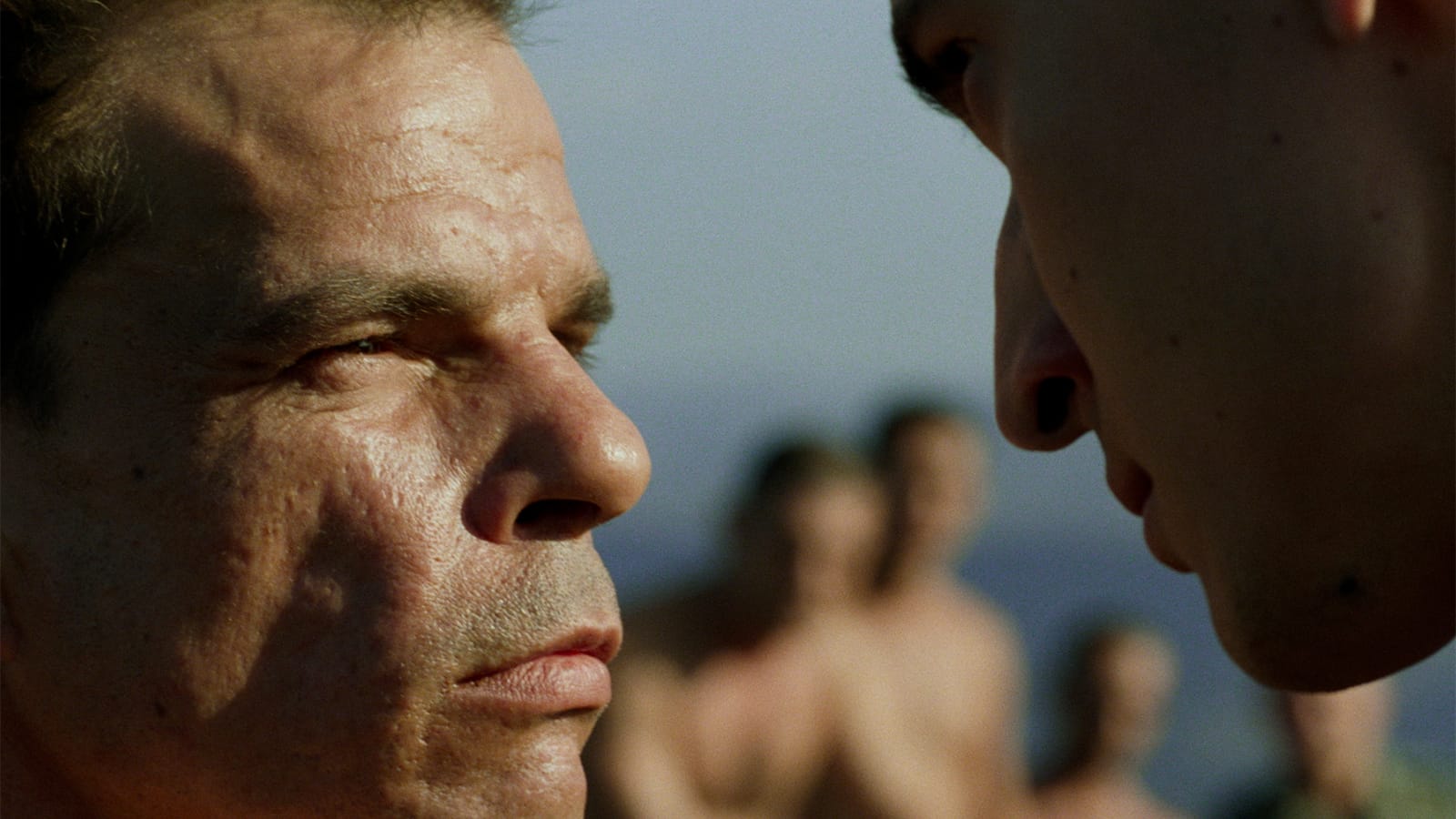
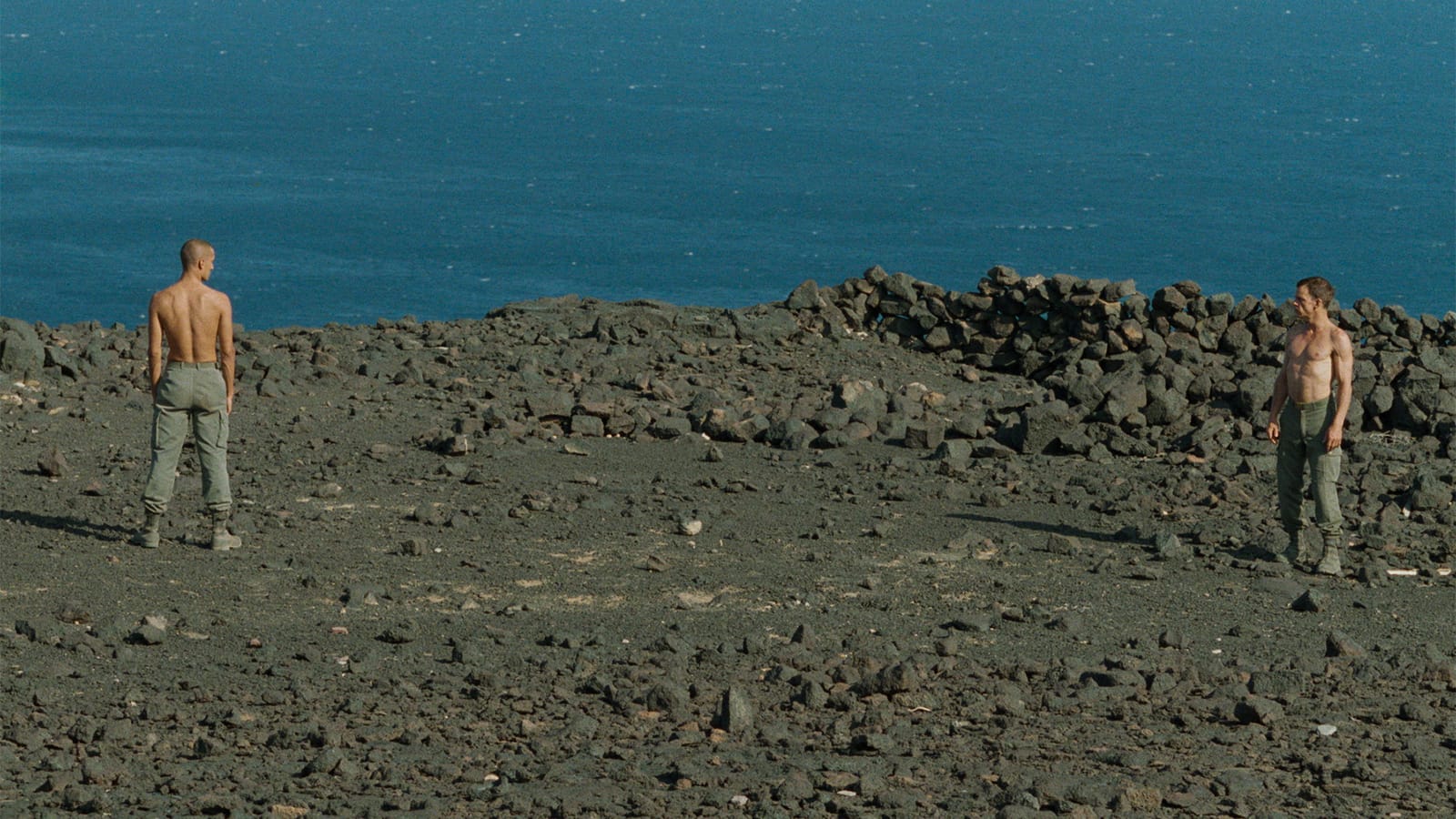
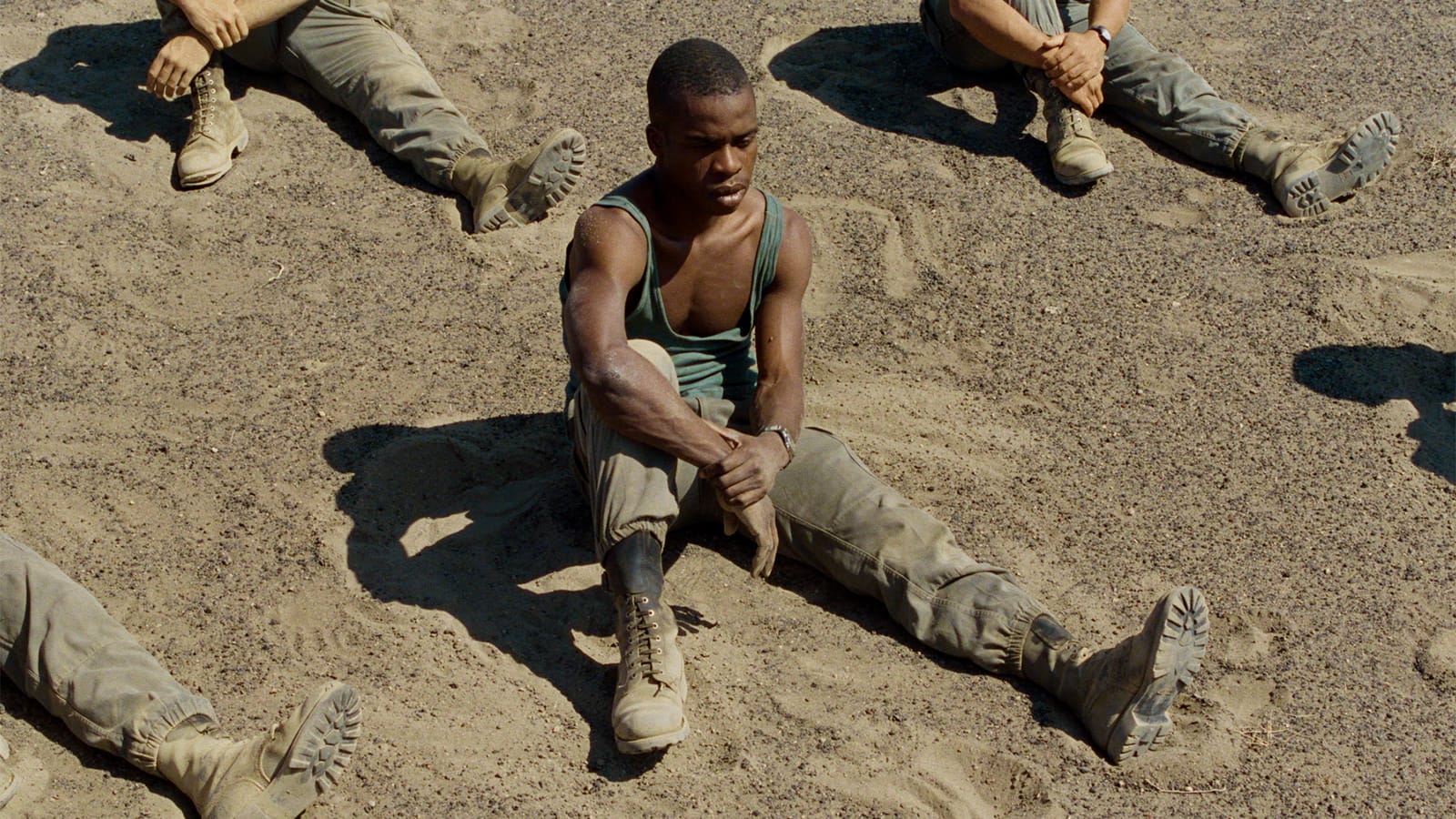
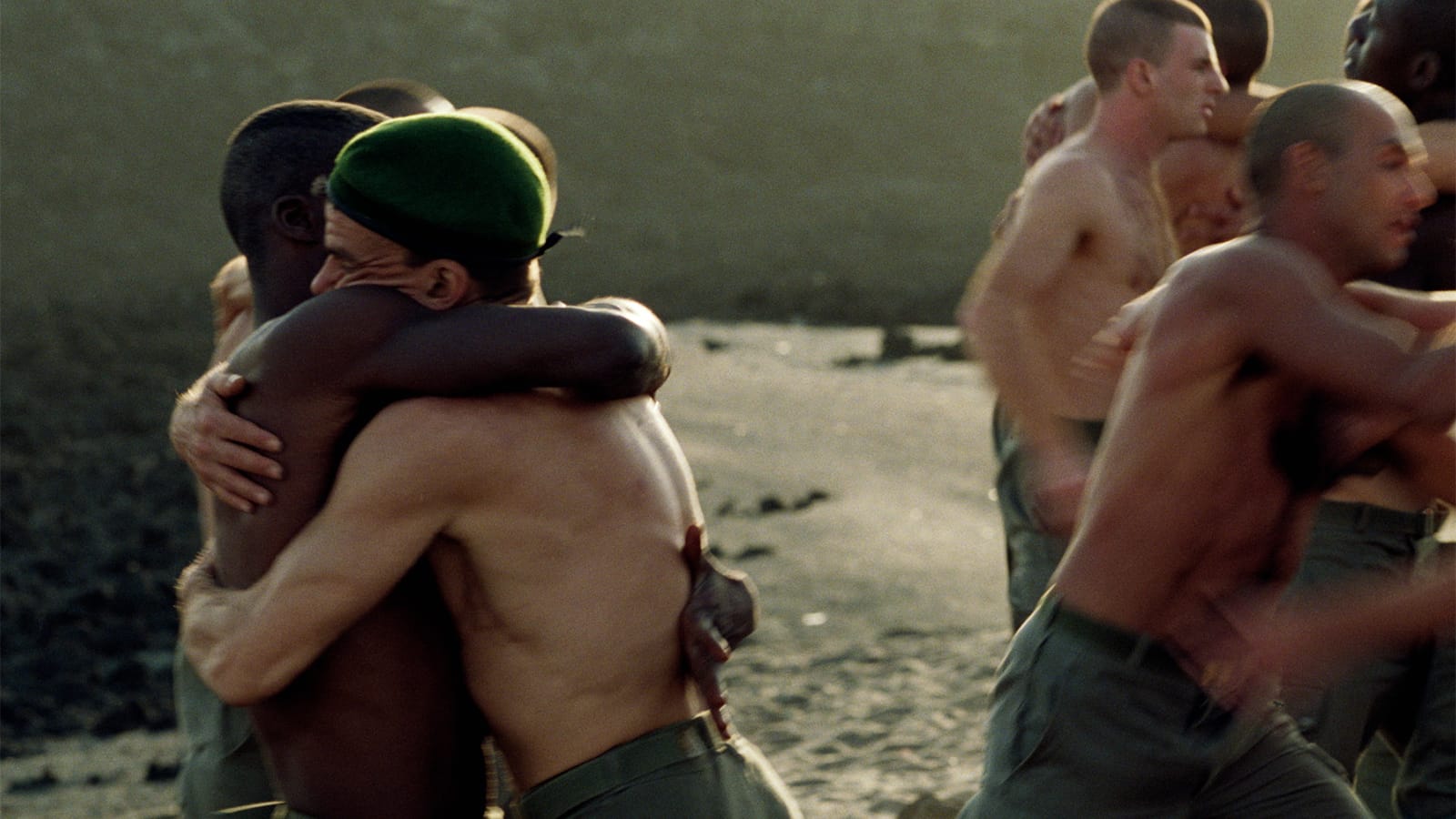
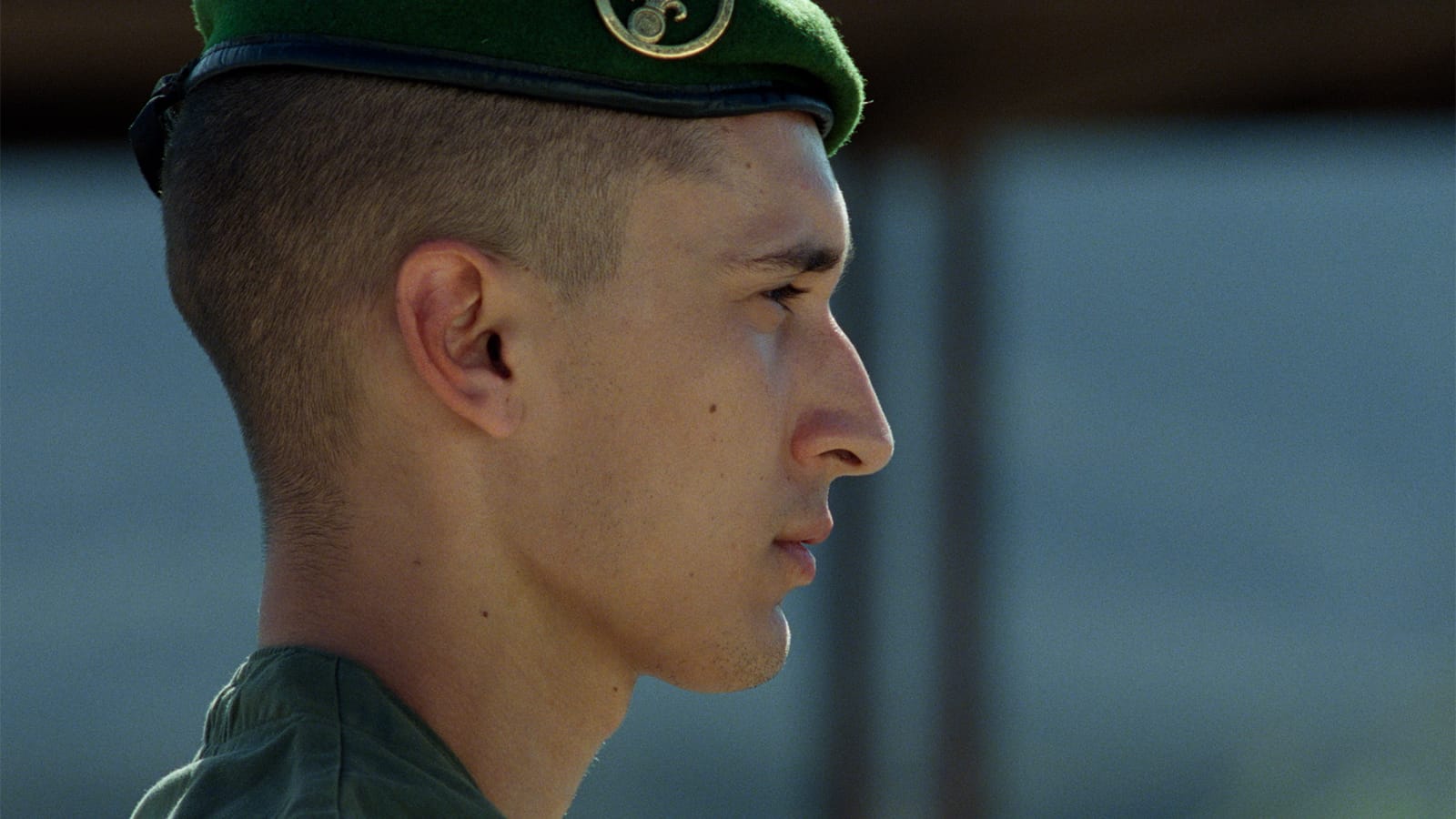
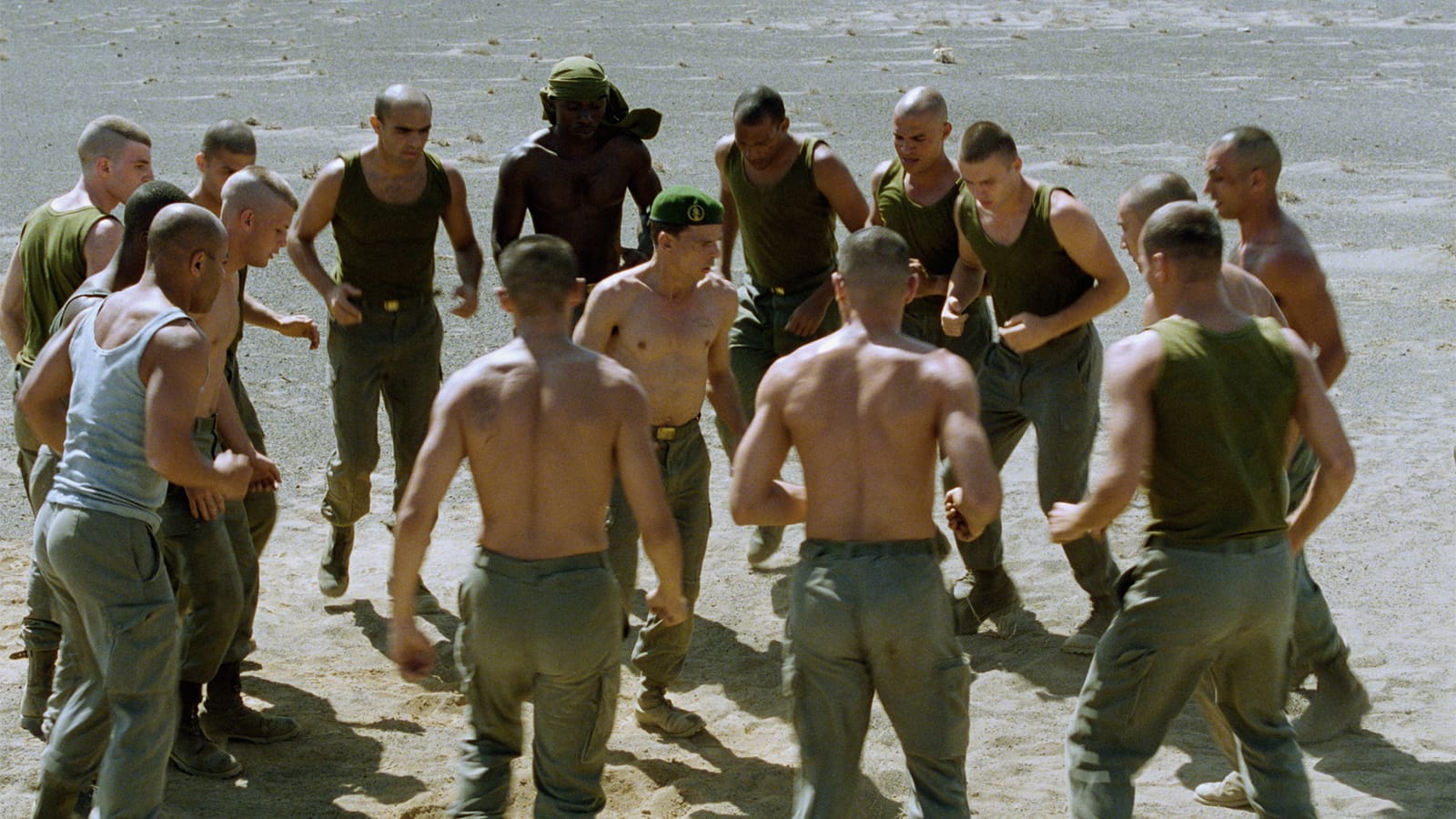
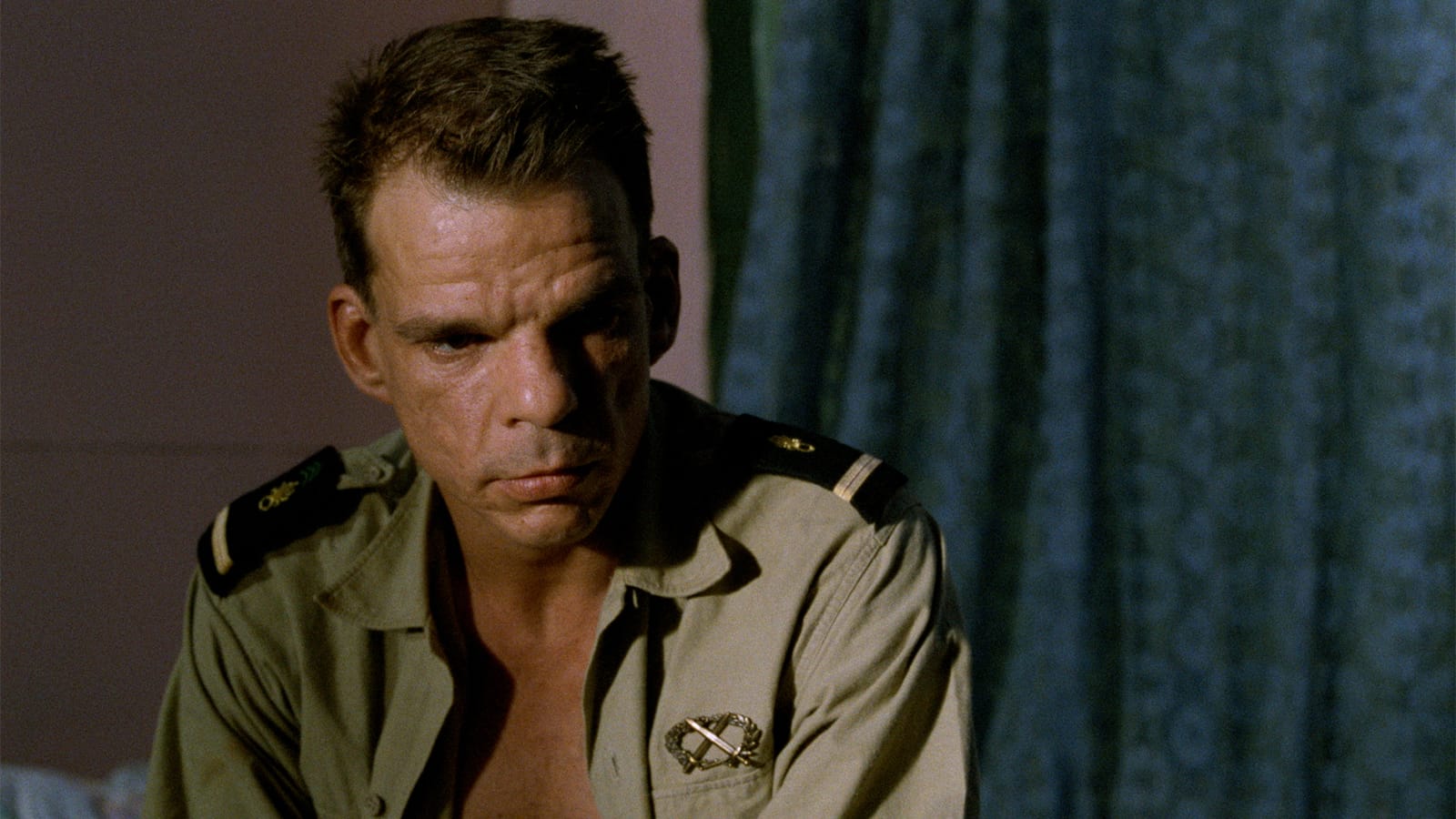
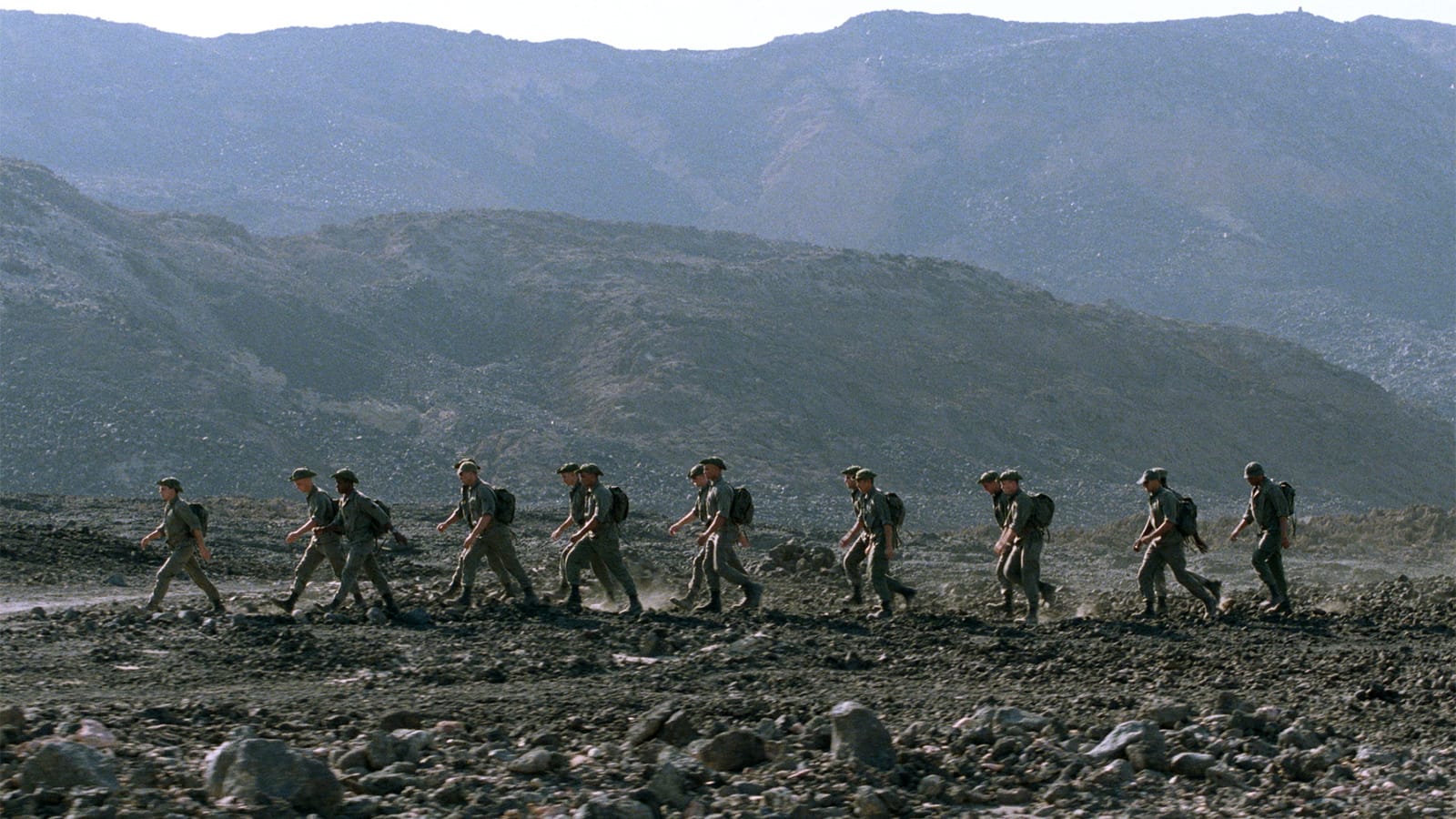
7:00 PM, Wednesday April 27
Premiere: Introduced by Angelica Waite
2:00 PM, Thursday April 28
Randwick Ritz
Director: Claire Denis
Country: France
Year: 1999
Runtime: 93 minutes
Rating: M
Language: French, Italian, Russian, Somali with Eng. Subtitles
TICKETS ⟶
Premiere: Introduced by Angelica Waite
2:00 PM, Thursday April 28
Randwick Ritz
Director: Claire Denis
Country: France
Year: 1999
Runtime: 93 minutes
Rating: M
Language: French, Italian, Russian, Somali with Eng. Subtitles
TICKETS ⟶
“AN ALLEGORICAL TALE OF REVENGE AND JEALOUSY SET WITHIN A FRENCH FOREIGN LEGION OUTPOST IN AFRICA”
– SLANT MAGAZINE
Veteran French director Claire Denis riffs off Herman Melville’s Billy Budd in this enthralling, lyrical drama about an officer, Galoup, recalling how his idyllic army days in Djibouti were destabilized by the arrival of a handsome young recruit who attracts the attention of Galoup’s commandant. An unforgettable film with an even more unforgettable end-titles sequence. Luminously photographed by Agnès Godard.
“Subtle brilliance that’s still relevant over twenty years later” – Fresh Fiction
Presented in a new 4K Restoration by Universal Pictures in collaboration with Martin Scorsese’s The Film Foundation.
Introduced by Angelica Waite, Film Programmer and Member of the Cinema Reborn Organising Committee.
Veteran French director Claire Denis riffs off Herman Melville’s Billy Budd in this enthralling, lyrical drama about an officer, Galoup, recalling how his idyllic army days in Djibouti were destabilized by the arrival of a handsome young recruit who attracts the attention of Galoup’s commandant. An unforgettable film with an even more unforgettable end-titles sequence. Luminously photographed by Agnès Godard.
“Subtle brilliance that’s still relevant over twenty years later” – Fresh Fiction
Presented in a new 4K Restoration by Universal Pictures in collaboration with Martin Scorsese’s The Film Foundation.
Introduced by Angelica Waite, Film Programmer and Member of the Cinema Reborn Organising Committee.
FILM NOTES
By Adrian Martin
Claire Denis:
Claire Denis (born 1946) graduated from the French film school IDHEC (today FÉMIS) in 1971, and became a valued assistant director to (among others) Jacques Rivette, Wim Wenders and Dušan Makavejev. Her powerfully ambivalent childhood experience of being raised in parts of Africa under French colonial rule has been a strong inspiration for her own work as director, beginning with Chocolat in 1988; “multi-racial” casts are standard in her projects. Writing steadily (often with collaborator Jean-Pol Fargeau) and filming quickly, she has managed to create fifteen features (and numerous shorts) in the past 34 years, with The Stars at Noon, a “romantic thriller” set during the Nicaraguan Revolution, coming next.
Celebrated by critics and regularly studied by scholars, Denis’ audiovisual treatment of story material is intensely lyrical and often deliberately enigmatic; she pays special attention, in editing, to scrambling the conventional bases of comprehension and multiplying the potential interpretive points-of-view. A devoted cinephile, Denis references many genres in her projects – thriller, action, musical (the dance scenes in her films are indelible), romance, sci-fi – yet always lands beyond the reassuring, straitjacketed conventions of any single generic template.
Regularly challenging puritanical morality and comfortably liberal political stances, Denis is unafraid of breaking taboos and confronting her audiences with violent and sexually provocative material, as in Les Salauds (Bastards, 2013) and High Life (2018). Her career highlights so far include J’ai pas sommeil (I Can’t Sleep, 1994), Trouble Every Day (2001), L’intrus (The Intruder, 2004), 35 rhums (2008), and the first of her collaborations with Juliette Binoche, Un beau soleil intérieur (Let the Sunshine In, 2017).
Celebrated by critics and regularly studied by scholars, Denis’ audiovisual treatment of story material is intensely lyrical and often deliberately enigmatic; she pays special attention, in editing, to scrambling the conventional bases of comprehension and multiplying the potential interpretive points-of-view. A devoted cinephile, Denis references many genres in her projects – thriller, action, musical (the dance scenes in her films are indelible), romance, sci-fi – yet always lands beyond the reassuring, straitjacketed conventions of any single generic template.
Regularly challenging puritanical morality and comfortably liberal political stances, Denis is unafraid of breaking taboos and confronting her audiences with violent and sexually provocative material, as in Les Salauds (Bastards, 2013) and High Life (2018). Her career highlights so far include J’ai pas sommeil (I Can’t Sleep, 1994), Trouble Every Day (2001), L’intrus (The Intruder, 2004), 35 rhums (2008), and the first of her collaborations with Juliette Binoche, Un beau soleil intérieur (Let the Sunshine In, 2017).
The Film:
Beau travail (‘fine work’) is among the freest, the most lyrical and inventive of films. Denis follows the example set by the Nouvelle Vague in the ‘60s, but across fiction and documentary work she has evolved her own, distinctive style and world-view.
It is a completely poetic piece, characterised by an unusual combination of images and music (classical and pop music alike), a minimal dependence on plot, and an approach to bodily gesture and movement that is much closer to dance than naturalistic drama – in fact, Denis collaborated with a choreographer, Bernardo Montet, on the staging of the action, especially its scenes of military exercise.
The film’s premise is simple: nominally a portrait of the French Foreign Legion stationed in Dijbouti at some point in the late 20th century. It may seem an odd or anachronistic idea – and that is exactly the feeling Denis wanted to create, of a colonial power hanging around and messing things up long past the supposed ‘glory days’ of the Foreign Legion mythologised in movies and popular culture. (In 2003, observing this region’s role in a newer war, she ruefully commented: “I thought I was filming the end of something, not the beginning”.)
Denis’ military men are mere figures in a landscape, detached from any reality but their own. Their codes of honour and rituals of masculinity are given a highly surreal air. Discipline, training, body-building – all these cyclical, daily activities of the Legionnaires are shown with an amused but also fascinated gaze. The film’s scenario is loosely based on Herman Melville’s unfinished 1891 novella Billy Budd (extracts from the score of Benjamin Britten’s operatic adaptation are included on the soundtrack), but the atmosphere has more in common with Samuel Beckett.
Beau travail shows the interaction of two starkly different worlds: the Legionnaires in their strange, ascetic bubble, and the African society all around them, sensual and vibrant. The soldiers seem forever separate from a forbidding, dry landscape; Denis shows this also as a clash between a world of men and a world of women. The women dance and laugh, providing an ironic perspective on the ingrown world of the men.
Within this microcosmic male world, however, things are stirring and seething. The core of the story, sketched in a very economical, almost diagrammatic way, is the mysteriously homoerotic triangle that forms between the head of this outfit, Bruno (Michel Subor), a new recruit, Sentain (Gregoire Colin) and the small, intense guy who runs the show from day to day, Galoup – played by the remarkable Denis Lavant, familiar from five Leos Carax movies (including Holy Motors, 2012).
Much of the film is told through the memories of the disgraced Galoup as he struggles uneasily to fit back into civilian life in Marseilles. Yet Galoup brings no particular hindsight or wisdom to his account. Instead, we enter into the intense world of his jealous fantasies and passions, his love for Bruno deforming any natural personal or professional relation he might ever have had with the unfortunate scapegoat, Sentain. (Denis and Fargeau were surely remembering René Girard’s influential theory of triangular ‘mimetic desire’, which literally became the inspiration and basis for Facebook: the obsessive fix of a thwarted, rejected or repressed lover on the ‘third party’ or object that the loved one likes.) These interpersonal tangles build to a level of tension and dread, of true drama and catharsis, which is unique in world cinema.
At the time of its commercial release in Australia, most mainstream reviewers went on the defensive about Beau travail, seeming to apologise to potential viewers for its careful pacing, its reliance on pure images and sounds over old-fashioned dialogue, and its modern approach to storytelling. But this is a film that, thanks to Denis’ masterful execution of a complex idea, compellingly creates its own frame of reference, taking you into its vivid world and commanding your full sensory and emotional attention.
Beau travail is a masterpiece (most fans regard it as Denis’ best so far), a film whose rich inner life only becomes more absorbing and intricate with repeated viewings. Oh, and have I mentioned the dance scenes? The film opens, stunningly, with a club crowd dancing to the Turkish hit by Tarkan, “Şımarık” (better known to Australians as “Kiss Kiss”, Holly Valance’s cover version), and ends, immortally, with one of cinema’s most extraordinary and oft-referenced spectacles: Lavant dancing his soul out to Corona’s 1993 “The Rhythm of the Night”. After seeing and hearing that, don’t let anyone tell you that disco is dead.
It is a completely poetic piece, characterised by an unusual combination of images and music (classical and pop music alike), a minimal dependence on plot, and an approach to bodily gesture and movement that is much closer to dance than naturalistic drama – in fact, Denis collaborated with a choreographer, Bernardo Montet, on the staging of the action, especially its scenes of military exercise.
The film’s premise is simple: nominally a portrait of the French Foreign Legion stationed in Dijbouti at some point in the late 20th century. It may seem an odd or anachronistic idea – and that is exactly the feeling Denis wanted to create, of a colonial power hanging around and messing things up long past the supposed ‘glory days’ of the Foreign Legion mythologised in movies and popular culture. (In 2003, observing this region’s role in a newer war, she ruefully commented: “I thought I was filming the end of something, not the beginning”.)
Denis’ military men are mere figures in a landscape, detached from any reality but their own. Their codes of honour and rituals of masculinity are given a highly surreal air. Discipline, training, body-building – all these cyclical, daily activities of the Legionnaires are shown with an amused but also fascinated gaze. The film’s scenario is loosely based on Herman Melville’s unfinished 1891 novella Billy Budd (extracts from the score of Benjamin Britten’s operatic adaptation are included on the soundtrack), but the atmosphere has more in common with Samuel Beckett.
Beau travail shows the interaction of two starkly different worlds: the Legionnaires in their strange, ascetic bubble, and the African society all around them, sensual and vibrant. The soldiers seem forever separate from a forbidding, dry landscape; Denis shows this also as a clash between a world of men and a world of women. The women dance and laugh, providing an ironic perspective on the ingrown world of the men.
Within this microcosmic male world, however, things are stirring and seething. The core of the story, sketched in a very economical, almost diagrammatic way, is the mysteriously homoerotic triangle that forms between the head of this outfit, Bruno (Michel Subor), a new recruit, Sentain (Gregoire Colin) and the small, intense guy who runs the show from day to day, Galoup – played by the remarkable Denis Lavant, familiar from five Leos Carax movies (including Holy Motors, 2012).
Much of the film is told through the memories of the disgraced Galoup as he struggles uneasily to fit back into civilian life in Marseilles. Yet Galoup brings no particular hindsight or wisdom to his account. Instead, we enter into the intense world of his jealous fantasies and passions, his love for Bruno deforming any natural personal or professional relation he might ever have had with the unfortunate scapegoat, Sentain. (Denis and Fargeau were surely remembering René Girard’s influential theory of triangular ‘mimetic desire’, which literally became the inspiration and basis for Facebook: the obsessive fix of a thwarted, rejected or repressed lover on the ‘third party’ or object that the loved one likes.) These interpersonal tangles build to a level of tension and dread, of true drama and catharsis, which is unique in world cinema.
At the time of its commercial release in Australia, most mainstream reviewers went on the defensive about Beau travail, seeming to apologise to potential viewers for its careful pacing, its reliance on pure images and sounds over old-fashioned dialogue, and its modern approach to storytelling. But this is a film that, thanks to Denis’ masterful execution of a complex idea, compellingly creates its own frame of reference, taking you into its vivid world and commanding your full sensory and emotional attention.
Beau travail is a masterpiece (most fans regard it as Denis’ best so far), a film whose rich inner life only becomes more absorbing and intricate with repeated viewings. Oh, and have I mentioned the dance scenes? The film opens, stunningly, with a club crowd dancing to the Turkish hit by Tarkan, “Şımarık” (better known to Australians as “Kiss Kiss”, Holly Valance’s cover version), and ends, immortally, with one of cinema’s most extraordinary and oft-referenced spectacles: Lavant dancing his soul out to Corona’s 1993 “The Rhythm of the Night”. After seeing and hearing that, don’t let anyone tell you that disco is dead.
The Restoration:
New 4K digital restoration, supervised by Director of Photography Agnès Godard and approved by director Claire Denis. The restoration used a linear PCM stereo track in the original French with some Italian, Russian and Arabic languages. It is a significant advancement in the film’s audio and score.
Credits:
Beau travail | Dir: Claire DENIS | France | 1999 | 93 mins | 4K DCP (orig. 35mm) | Colour | 1.66:1 | Dolby Surround Sound | French, Italian, Russian, Somali with Eng. Subtitles | (M).
Production Companies: La Sept-Arte, Pathé Télévision, S.M. Films, Tanaïs Productions | Producer: Patrick GRANDPERRET | Script: Jean-Pol FARGEAU, DENIS, from Herman Melville’s novella Billy Budd, Sailor | Photography: Agnès GODARD | Editor: Nelly QUETTIER | Production Design: Arnaud DE MOLERON | Sound Recording: Jean-Paul MUGEL, Dominique GABORIEAU, Alexis LEVERVE | Sound Editing: Christophe WINDING | Sound Engineering: André CAPPELLO, Nathalie VIDAL | Music: Charles Henri de PIERREFEU, Eran TZUR | Costumes: Judy SHREWSBURY | Special Visual Effects: Ronan BROUDIN, Gilbert KINER, Laurent TREHERNE, Laurent
ULLMAN.
Cast: Denis LAVANT (‘Galoup’), Grégoire COLIN (‘Gilles Sentain’), Michael SUBOR (‘Commander Bruno FORESTIER’), Nicolas DUVAUCHELLE (‘Legionnaire’), Richard COURCET (‘Legionnaire’), Dan HERZERG (‘Legionnaire’).
Source: Janus Films.
Credits:
Beau travail | Dir: Claire DENIS | France | 1999 | 93 mins | 4K DCP (orig. 35mm) | Colour | 1.66:1 | Dolby Surround Sound | French, Italian, Russian, Somali with Eng. Subtitles | (M).
Production Companies: La Sept-Arte, Pathé Télévision, S.M. Films, Tanaïs Productions | Producer: Patrick GRANDPERRET | Script: Jean-Pol FARGEAU, DENIS, from Herman Melville’s novella Billy Budd, Sailor | Photography: Agnès GODARD | Editor: Nelly QUETTIER | Production Design: Arnaud DE MOLERON | Sound Recording: Jean-Paul MUGEL, Dominique GABORIEAU, Alexis LEVERVE | Sound Editing: Christophe WINDING | Sound Engineering: André CAPPELLO, Nathalie VIDAL | Music: Charles Henri de PIERREFEU, Eran TZUR | Costumes: Judy SHREWSBURY | Special Visual Effects: Ronan BROUDIN, Gilbert KINER, Laurent TREHERNE, Laurent
ULLMAN.
Cast: Denis LAVANT (‘Galoup’), Grégoire COLIN (‘Gilles Sentain’), Michael SUBOR (‘Commander Bruno FORESTIER’), Nicolas DUVAUCHELLE (‘Legionnaire’), Richard COURCET (‘Legionnaire’), Dan HERZERG (‘Legionnaire’).
Source: Janus Films.
